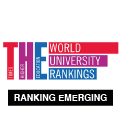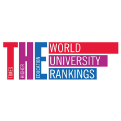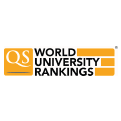The structure of the Master's Degree University Personnel Management Service in Organisations consists of three elements:

TEACHING
Period of 9 months

PRACTICES
4-month period

TFM
project End of Master's Degree
outline During the coursework period, the theoretical sessions are complemented with the use of the case method following the following working method: study of the bibliographic material and application to the analysis of cases, work in groups on these cases, preparation of reports and discussion of the cases in general sessions with all the groups. As a complement to the sessions, conferences and visits to companies and institutions are organised.
During one week of the Master's course, students move to the IESE Barcelona to broaden their knowledge in the area of "Management Skills" with classes taught by IESE professors.
MATERIALS |
SEP-JAN |
FEB-MAY |
LAST. WEEK. MAY |
JUL-SEPT |
OCT |
|
Management Skills |
|
|
IESE |
Internships |
Master's Thesis |
|
Business Management |
|
|
|
||
|
Economic and Legal Environment |
|
|
|
||
|
Advanced People Management |
|
|
|
||
|
development People Projects |
|
|
|
||
|
Innovation management |
|
|
|
||
|
Coaching |
|
||||
REGULATIONS
- Rules and regulations of permanence in the programs of study of Degree
- Rules and regulations of permanence in the programs of study of Master's Degree
- Rules and regulations of credit recognition for Degree
- Rules and regulations of credit recognition for Master's Degree
- Rules and regulations of Credit Recognition for Technician of training Profesional
- Rules and regulations University Basics
- Rules and regulations general about assessment
YOU MAY BE INTERESTED IN
Subjects
project of development of People is known as the function module. Students tend to identify this module with the more practical or applied content. It covers all the aspects that the people management professional works on throughout what is known as the "life cycle of employee": from their selection when they join an organisation until they leave. In this interval, all issues related to (i) career planning and development (training, promotion plans and development), (ii) loyalty policies for the best employees and, in particular, (iii) remuneration policies (compensation and benefits) occupy a prominent place. The module presents the "operational" aspects of people management (payroll, payment management, recruitment and on-boarding processes, termination management, etc.) in which the goal is to execute as efficiently as possible. It is very important that the student knows the scope and issues of these operational tasks, but the module focuses mainly on the "strategic" aspects, i.e. those that have an impact on the effectiveness in meeting the strategic objectives of the organisation.
ECTS CREDIT: 10
The MDPO's mission is to train people management professionals with an eminently practical approach to the current business world approach . In order to do this, it is just as important to know the concepts and fundamentals of people and organisations, management techniques and innovation, anthropological foundations and the nature of business, as it is to know the economic, labour and legal environment that surrounds it. Moreover, the strategy of many organisations today is not only to know how to manage with people in mind, but also requires a complex management of their labour relations and labour markets, which are already highly globalised. Knowing how to navigate in a sometimes rigid legal environment is crucial for the economy of an organisation business, making mastery of the economic and legal environment of both industrial and service companies a strategic necessity for all professionals involved in management.
An in-depth knowledge of Labor Law, labour relations models and labour markets in Spain, but also in other countries, will help to understand the complex problems faced by managers, so that they can create the best solutions for their companies. The knowledge of the economic and legal environment is therefore not only an instrument for improving competitiveness in organisations, but also an essential tool for business survival.
The Economic and Legal Environment module is structured in three blocks, divided into two subjects:
EEL I (subject of the first semester): 5ECTS
-
Labor Law and Labor Relations: Professors: Lucas Peiro de la Rocha, Francisco Conde and Valentín García.
EEL II (subject of the second semester) 3 ECTS credit
-
Economics Labour: Profª Mª Jesús Valdemoros
-
Payroll: Profª Elena Unzue
-
Collective Bargaining: Prof. Carlos Martí
-
Regulation Files employment: Prof. Germán Aranda
ECTS CREDIT: 8
We live in a changing world. The technological revolution is enabling new business models and new ways of organising work. In an economy of intangibles, a few digital giants are struggling to dominate the world. At the same time, the reduction of transaction costs, result of the digitalisation of the economy, makes it possible for any good idea to quickly become a global business and threaten the status quo of an industry.
At the same time, the world order is changing. China is already the world's largest economy in terms of purchasing power parity and India is expected to be the second largest by 2050. Some leaders are threatening protectionist measures with unpredictable consequences in the era of global supply chains. The world's population is ageing. Migratory movements are multiplying. Work is becoming automated. Citizens' trust in institutions is at historic lows. Consumer preferences are changing rapidly. Companies realise that their competitiveness no longer depends so much on possessing resources that are difficult for their competitors to imitate as on their ability to reconfigure themselves in the face of a rapidly changing environment.
To survive in the marketplace, companies need to be open and connected, flexible and agile. This implies quite a few challenges for department human resources because things are made by people and for business to change, people need to know how, be able and want to change. Achieving the change of culture required by today's companies towards a model in continuous movement is not easy and the way to achieve it involves the implementation of specific projects that will accustom people to do things differently and to enter into the dynamics that will transform the culture of efficiency into an innovative culture.
The Innovation Management module is structured in the following 4 blocks, and in a single subject:
management INNOVATION. (subject of the second semester)
-
Organizational Transformation: Prof. Barney Quinn
-
Entrepreneurship and management of Innovation Projects. Prof. Andrés Pérez
-
Processes of the department HR. Prof. Iker Echarri
-
Excel, Tableau and Power BI. Prof. Iñigo Calabuig
-
HR Analytics: Big Data and Artificial Intelligence. Prof. Delia Majarin
-
New Forms of work: Professors Santiago García
ECTS CREDIT: 8
Management Skills integrates the study of the principles of business management with the study of the behaviour of people in organisations. The module addresses the issues that all managers will face in their professional work: (i) managing organisations and implementing their own leadership style and corporate culture; (ii) managing change; (iii) developing talent in others - usually, but not always, collaborators; and (iv) forming and leading teams to carry out projects. However, the module stresses that all of this is based not only on an understanding of how organisations work, but also on proper management of oneself and one's ability to interact with others, including interpersonal communication, decision-making processes, conflict management, negotiation skills, etc.
Management Skills is structured in the following eight blocks, divided into two subjects:
HD I (subject of the first semester) 5 ECTS credit
-
framework Conceptual: Prof. Nacho Contreras.
-
Negotiation, skill and cooperation: Prof. Javier Urdiales
-
Change management: Leadership as staff and corporate excellence. International Week. Professors: James Lockhart and Santiago Martínez.
HD II (subject of the second semester) 4 ECTS credit
-
Team Management: Prof. Iñigo Marquina
-
Leadership staff: Prof. Joseba Campos
-
Communication: Prof. Alfonso Sanchez-Tabernero, Santiago Fernandez-Gubieda and Sergi Molas
-
management Diversity and Reconciliation Policies: Profª Elena Dinesen
ECTS CREDIT: 9
The effort for a correct anthropological foundation of business management is undoubtedly one of the most distinctive features of the MDPO. This is a necessary condition for making the transition from "Human Resource Management" to modern "People Management" a reality. In this module, challenge specifically takes on the task of laying the instructions foundation for this. This is done on the basis of three main pillars:
-
the study of the place of the individual in today's society, economy and business ;
-
the design of a humanistic model address; and
-
the examination of managerial ethics, corporate governance and corporate social responsibility.
In this way, a philosophically solid and coherent conception of the person is proposed as a guide and inspiration for decision-making in the practical reality of business, while at the same time acting as a support and reference for the rest of the subjects in the master's degree.
ECTS CREDIT: 9
The MDPO's mission is to train people management professionals with "business vision"; people who know how to understand the needs of the moment; people who, from their area of responsibility, know how to generate proposals for improvement; and people who are capable of explaining how these proposals can contribute to solving problems or achieving competitive advantages. To be able to do the above (especially the latter), a human resources professional must be able to speak the language of business.
In Business Management I and II students will become familiar with the basic concepts of Business Management: it is very convenient for any expert in People Management to additionally have a cursory knowledge of the issues that arise and are dealt with in the basic functional areas of any organisation.
People Management in Organisations must have some knowledge knowledge of the problems of all areas of the organisation, their working methods, objectives and points of view. This subject multidisciplinary aims to help student to become familiar with these Departments and the issues that concern the people who work in them.
The student must finally be able to analyse the situation of a business, distinguishing and separating the problems that arise from the relevant criteria/factors for decision-making and, using the theoretical knowledge acquired, analyse the alternatives that arise in the future of the company and propose specific action plans. To do this, you will work on multiple examples of real cases.
Business Management is structured in the following blocks, divided into two subjects:
DN I (subject of the first semester) 6 ECTS credit
-
Accounting: Prof. Javier Arellano
-
Finance: Profª. Carmen Aranda
-
Business Situation Analysis: Prof. José Manuel Malmierca
-
Marketing: Prof. Álvaro Viladrich
DN II (subject of the second semester) 4 ECTS credit
-
Organization, Operations and Processes: Prof. Alex Grasas
-
Strategy: Prof. Enrique de Diego
-
management and assessment Performance Control: Professors: Javier Arellano and José Manuel Malmierca
ECTS CREDIT: 10
Coaching, and the figure of the coach, has become fundamental in recent years within organisations, work teams and individuals for professional and personal development . Many of the problems that coaching financial aid helps to solve (organisational, communicative, collaborative...) for executives, managers and professionals can be applied to the university environment and postgraduate program, to work from the beginning on improving different aspects.
The subject of COACHING (subject of the first and second semester) 6 ECTS credit. is proposed as a complement to the training of the professional expert in development of people, with the main aim of focusing on the appreciative look at the person, and all the potential of development that lies ahead. This subject also forms part of a global and 360º approach to coaching, where the student will be able to receive coaching as a coachee, equip themselves with team coaching tools, and receive comprehensive monitoring throughout the course.
-
Coaching: Professors Geni Capdet, Nora Reta and Ramón Palacios.
-
Mentoring: Prof. Luis López
ECTS CREDIT: 6
The internship consists of the application of both the theoretical and practical knowledge acquired during the teaching period of the master's degree and the competences acquired by the students in the programme's development .
In each case the internship will have specific and diverse contents, as well as its own academic and work objectives, in accordance with the business and with the department where student carries out the internship. The work placement is a compulsory academic activity. They will therefore be subject to assessment.
Internships takes place during the second academic year. Teacher coordinator: Álvaro Lleó
ECTS CREDIT: 24
The subject "Master's Thesis"(called TFM) involves carrying out a project for the specific improvement of a process or current situation related to the management of people within the organisation in which the student carries out the subject Internship. However, the TFM must be additional to the day-to-day work of the internship (and, therefore, must involve an additional workload to that of the internship).
As a final result of the TFM each student must jointly submit , once the internship has finished or is about to finish, a final written report and a script in digital support that, based on this report, allows its future presentation and oral defence before a tribunal.
There is an intermediate milestone in which students must submit to the teacher a complete draft of the final report . Thus, within a maximum period of 15 days from their submission each student will receive from the teacher a reasoned explanation of the aspects which, in their opinion, need to be improved for the final report .
The work end of Master are made during the second academic year. Professor coordinator: José Antonio Alfaro
ECTS CREDIT: 6






